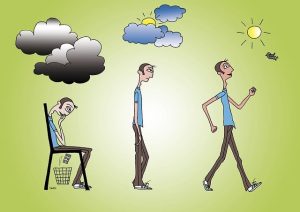When in addiction recovery for substance abuse, every addict will be scared of relapsing. The definition of relapse is “to fall or slide back into a former state”. For recovering addicts this means abusing drugs or alcohol again. Although relapse in not desirable, it does not mean you have failed. Falling back into substance abuse can of course lead to dangerous situations.
Relapsing
This is considerable amounts of time but if you make the utmost effort to put an end to your relapse, rather than yielding to it, it won’t have that great an impact on your life and you can go back on to your path to recovery and leading a happy, healthy, sober life. A onetime slip up does not have to lead to a long term relapse. Every individual has the ability to stop their behaviour from escalating into something more serious than it needs to be. In addressing the relapse immediately after it happens, this is the surest way to limit any further damaging behaviour.
12 Step Program

As part of the 12 step program in Alcoholics Anonymous, the addict must acknowledge that they are “powerless over alcohol” and this can be referenced to other substances, not just alcohol. In accepting that you have a problem you are able to help yourself. Therefore, if you relapse, being honest with yourself is necessary. By accepting that you have made a mistake you will be able to move and get past it.
After admitting to yourself that you have made an error, the next step should be to give yourself a commitment to stay sober and clean for the next 24 hours. The concept of taking it ‘one day at a time’ really comes in to play here. By breaking down the amount of time abstaining from substances, you are giving yourself an attainable goal that is not too daunting. Reconnecting with a higher power, be it through spirituality or religious text, being able to reassert your faith will be of great help in getting back on to your road to recovery.
The shame and guilt
After relapsing, an addict will most likely feel deeply ashamed and upset that they have taken a step back in their recovery process. Therefore it is very common that after relapsing the individual will keep it to themselves. However, this is a very precarious decision. The best thing to do is to share what happened with a loved one, sponsor, therapist, anyone whom you trust. In sharing the problem you are letting go of the shame and avoiding potential future problems.
If you are a member of a 12 step program you must try and get yourself to a meeting as soon as possible after your relapse. That is where you will find the support needed to move on from your relapse. Even if you do not attend regular meetings, you should try and attend one as soon as possible after relapsing and by continuing to attend you will prevent the possibility of it happening again.
Not the end of the road
It is often said that “relapse is a process” and is just part of the journey to recovery for some people. Relapsing doesn’t have to mean the end of the road for sobriety; it is just another hurdle that you need to jump over to maintain your abstinence.
The Haynes Clinic offers residential treatment for dependency on alcohol, drugs and prescription medication. We can also help with other addictions such as gambling and with eating disorders.
